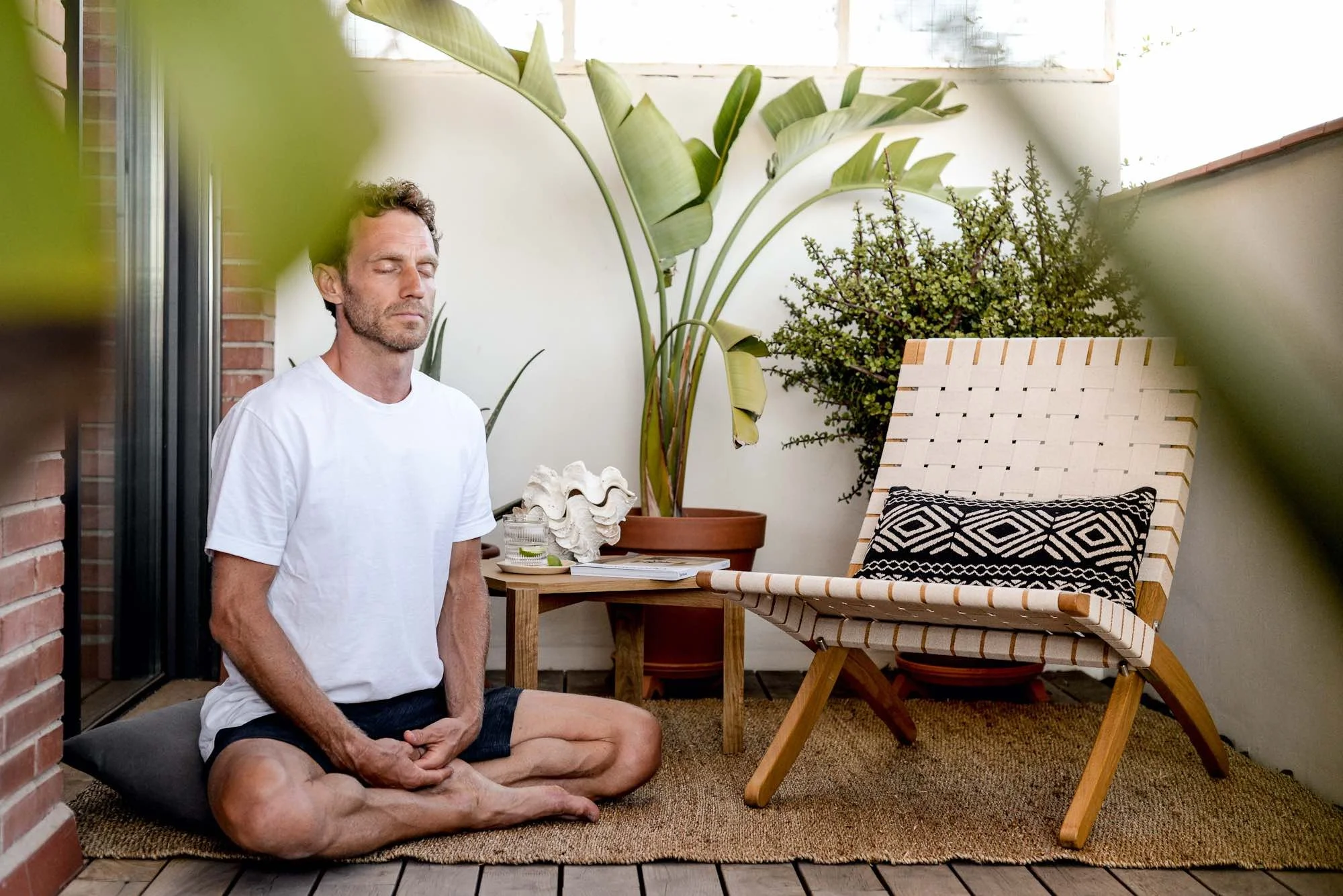The Influence of Water Temperature on Emotional Stability During Bath Meditation

The Role of Water Temperature in Emotional Well-being
The experience of bath meditation can be profoundly transformative, offering a sanctuary for the mind and a reset for emotions. Many practitioners report significant emotional benefits, yet one often-overlooked factor is the temperature of the water. This seemingly simple element can substantially influence our emotional stability and overall meditative experience.
Understanding how water temperature affects our mental state is crucial, particularly in a diverse climate like Nigeria’s, where fluctuations in weather can impact daily routines. Here are several key points to consider:
- Warm Water: Often associated with relaxation, warm water helps to ease muscle tension and promote a sense of comfort. The warmth can stimulate blood circulation, which not only invigorates the body but also releases endorphins, the body’s natural stress relievers. For practitioners, soaking in a warm bath can evoke memories of nurturing experiences, such as a mother’s embrace or a sunny day, enhancing emotional comfort.
- Cold Water: In contrast, embracing cold water can invigorate the body, leading to heightened alertness and improved focus. This practice, though daunting to many, can be particularly refreshing in Nigeria’s humid conditions. There’s a growing trend of using cold baths or showers as a way to improve mental resilience and better cope with stress. However, for those unaccustomed to cold exposure, it may initially cause discomfort and should be approached gradually.
- Balanced Temperature: A moderate temperature, around body temperature, can strike the ideal balance between relaxation and alertness. This temperature can provide a calming yet invigorating backdrop for meditation, allowing practitioners to enter a state of mindfulness without excessive stimulation or drowsiness. This is especially pertinent in urban areas like Lagos or Abuja, where the hustle and bustle can overwhelm the senses.
In Nigeria, where bath meditation practices may differ across regions, practitioners often adapt their approaches based on local conditions. For example, during the hotter months, individuals may find solace in cooler baths to counteract the heat, while in the cooler seasons, warm water meditation can be particularly comforting. Adapting to local climates not only enhances the meditative experience but also fosters a deeper understanding of one’s emotional needs.
As we delve deeper into this topic, we will uncover how water temperature plays a pivotal role in achieving emotional balance during bath meditation. This exploration serves as an invitation to discover practical strategies for enhancing emotional stability and enriching your meditation practice. Through the right temperature, we can unlock a more profound emotional connection to ourselves, allowing for a more fruitful and rewarding meditation experience.
CHECK OUT: Click here to explore more

Understanding Warm Water’s Comforting Embrace
Warm water is a pivotal element for those engaging in bath meditation, offering not just physical relaxation but also an emotional sanctuary. The act of immersing oneself in warm water can be likened to receiving a gentle hug from the universe, creating an environment that promotes a serene state of mind. Research has shown that warm baths can lower cortisol levels, the hormone associated with stress, thus directly enhancing emotional stability. When practitioners indulge in warm bath meditation, they often find themselves better equipped to handle fluctuating emotions.
The emotional benefits of soaking in warm water extend beyond mere relaxation; they delve deeper into the psychological realm. For many Nigerians, water holds cultural significance, often associated with purification and renewal. This connection may enhance the emotional experience during meditation, as the warm water serves as a symbolic cleansing, washing away daily stresses and anxieties. Rituals involving water are common in various Nigerian cultures, and incorporating these practices during bath meditation can amplify one’s spiritual and emotional journey.
- Muscle Relaxation: Warm water aids in loosening tight muscles and alleviating physical pain, which can often be a barrier to achieving a focused meditative state. As muscles relax, so do the mind and spirit, creating a more conducive environment for introspection and emotional exploration.
- Enhanced Mood: The soothing nature of warm water promotes the release of dopamine, a neurotransmitter responsible for feelings of pleasure and happiness. This chemical reaction helps in elevating one’s mood, making it easier to embrace a mindset conducive to meditation and self-reflection.
- Sensory Experience: Engaging in bath meditation invites a rich sensory experience—warm water combined with serene scents or ambient sounds can create a sanctuary of tranquility. This multisensory environment can anchor the mind, helping to dissolve emotional distractions and fostering greater focus during meditation sessions.
Moreover, the psychological aspect of bathing in warm water can enhance emotional stability through nostalgia. Reinventing memories tied to warmth, such as a childhood bath or relaxing moments spent with family, can evoke feelings of comfort and safety. As individuals embrace these reminiscences, they can create a strong connection between the body and mind. This connection can lead to a more profound and meaningful meditation experience.
In the context of Nigeria’s vibrant yet sometimes overwhelming urban life, warm baths provide a much-needed escape. Practitioners can utilize this restorative practice to carve out a personal haven, allowing for emotional rejuvenation amidst daily stresses. The warm water becomes a medium for emotional healing and a catalyst for personal growth in today’s fast-paced world.
As we explore the contrasting effects of water temperatures, it becomes essential to consider how the choices we make in our bathing rituals can profoundly impact our emotional well-being. By understanding the nuances of warm water’s embrace, individuals can enhance their bath meditation experience, leading to better emotional stability and overall mental health.
The Role of Water Temperature in Bath Meditation
The influence of water temperature during bath meditation extends beyond mere physical sensation; it enhances emotional stability through various physiological and psychological mechanisms. Understanding these mechanisms can lead to profound insights into how we can optimize our meditation practices.
| Category | Characteristics/Benefits |
|---|---|
| Warm Water Therapy | Promotes relaxation and circulation, leading to reduced anxiety levels. |
| Cold Water Exposure | Stimulates endorphin production, aiding in mood elevation and emotional resilience. |
The temperature of the water plays a critical role in achieving a meditative state. Warm water can create a comforting environment, allowing individuals to feel safe and at ease, crucial for effective meditation. This sensation can significantly decrease stress hormones, facilitating deeper emotional exploration.Conversely, cold water exposure has been shown to increase alertness and invigorate the senses, which can heighten awareness during meditation. This abrupt change engages physiological responses that can lead to greater emotional clarity. Various studies indicate that such practices not only adjust emotional states but also improve overall mental health, making bath meditation an accessible form of self-care.Combining water temperature with mindfulness techniques can yield substantial benefits. By experimenting with different temperatures, individuals can enhance their emotional stability and overall well-being. The exploration of these sensory experiences opens up new dimensions in meditation practice that deserve further investigation and personal reflection.
SEE ALSO: Click here to read another article
The Awakening of Cool Waters: A New Perspective
While warm water has long been celebrated for its nourishing and calming attributes, cool water also has a unique bouquet of benefits that deserves recognition in the realm of bath meditation. The therapeutic aspects of cooler temperatures can provide a refreshing contrast that not only invigorates the body but also sharpens the mind, leading to potential improvements in emotional stability. Cooling baths can stimulate the production of endorphins, also known as the body’s natural painkillers, which may enhance mood and lower feelings of anxiety.
The soothing embrace of cool water can rejuvenate the spirit, providing a sense of clarity that encourages deeper introspection. In many traditional practices across Nigeria, cool water is often associated with awakening and clarity, harnessing the essence of nature to promote mental agility. Immersing oneself in cool water can serve as a metaphorical cleansing, washing away lethargy and confusion, paving the way for renewed focus during meditation.
- Mindfulness Enhancement: The refreshing sensation of cooler water promotes alertness, activating the body’s senses. This wakefulness invites individuals to be present in their meditative practice, fostering mindfulness—a crucial element in establishing emotional stability. Being fully engaged in the moment can help practitioners confront and address their emotional turbulence rather than retreating from it.
- Thermoregulation: The human body has an incredible ability to adapt to different temperatures. A cool bath may promote thermoregulation, encouraging more efficient blood circulation. This helps release built-up tension and induces bodily harmony, vital for maintaining emotional balance.
- Increased Breathing Awareness: The initial shock of cool water typically leads to increased respiratory activity. Paying attention to breath and bodily sensations during a cool bath allows practitioners to cultivate a deeper connection with their internal states, paving the way for emotional exploration during meditation.
Moreover, the cultural significance of water in Nigeria cannot be understated, especially when discussing cool water rituals. Traditional practices often involve the use of water for cleansing and renewal, symbolizing a fresh start and potential growth. These culturally rooted connections can enhance emotional engagement during bath meditation, allowing individuals to reflect on their personal hopes and challenges while submerged in cool water.
In urban Nigerian settings, where the pace of life can be relentless, cool baths can serve as an accessible retreat, allowing city dwellers to momentarily step away from bustling environments. This brief pause can foster mental clarity, encouraging individuals to tackle life’s demands with renewed energy and emotional resilience. As individuals navigate their journey through meditation, they may find that cool water represents not just a physical stimulus but a metaphorical canvas for emotional exploration.
As we ponder the contrasting effects of water temperatures, it becomes increasingly evident that both warm and cool baths offer unique pathways to emotional stability. By embracing these diverse experiences, practitioners can cultivate a rich tapestry of meditation practices designed to nurture their emotional well-being and holistic growth.
ADDITIONAL INSIGHTS: Expand your understanding here
Conclusion: Embracing the Therapeutic Spectrum of Water Temperatures
As we delve into the multifaceted relationship between water temperature and emotional stability during bath meditation, it becomes apparent that the choice between warm and cool baths is not merely a matter of preference but a profound opportunity for personal growth and emotional resilience. Both warm and cool water offer unique physical and psychological benefits, inviting practitioners to explore the therapeutic landscapes they present. Warm baths provide comfort and tranquility, facilitating relaxation and reducing anxiety, while cool baths invigorate the senses, stimulating alertness and mindfulness. The invigorating sensations of cool water not only foster emotional clarity but also promote vital mindfulness practices necessary for emotional stability.
In the context of Nigerian culture, where water holds significant symbolism for renewal and cleansing, integrating cooling baths into one’s meditation routine can enhance both personal and communal practices. This cultural resonance enables individuals to reflect deeply on their emotional journeys, fostering insights that might otherwise remain hidden. As urban life becomes increasingly hectic, the accessibility of cool baths provides a much-needed sanctuary for emotional introspection and rejuvenation.
Ultimately, the exploration of water temperature’s influence on emotional stability during bath meditation opens up a spectrum of possibilities. Adopting a balanced approach that encompasses the soothing warmth of heated water alongside the refreshing touch of cool water can cultivate a more profound connection with oneself and the surrounding world. By traversing this dynamic landscape, individuals are better equipped to confront emotional challenges, embrace their journey of self-discovery, and ultimately enhance their overall well-being through the simple act of meditation.


